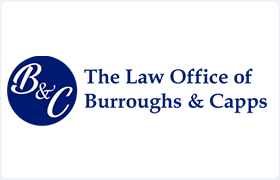Powell Divorce & Family Law Lawyer, Tennessee
Sponsored Law Firm
-
 x
x

Click For More Info:
-
The Law Office of Burroughs & Capps
9111 Cross Park Drive Suite E-100 Knoxville, TN 37923» view mapDivorce & Family Law We've Successfully Helped Thousands
At the Law Office of Burroughs & Capps, you will receive the quality representation and personal attention that you and your claim deserve.
800-682-8380
Michael Stanley Farley
Litigation, Family Law, Criminal, Personal Injury
Status: In Good Standing Licensed: 29 Years
Kevin Brian Fox
Divorce & Family Law, Estate, Employment, Lawsuit & Dispute, Family Law
Status: In Good Standing Licensed: 34 Years
Casey Daganhardt
Criminal, Disability, Elder Law, Family Law
Status: In Good Standing Licensed: 43 Years
Michael Farley
Litigation, Family Law, Criminal, Personal Injury
Status: In Good Standing Licensed: 29 Years
Erica Mcclure
Dispute Resolution, Family Law, Juvenile Law, Litigation
Status: In Good Standing Licensed: 12 Years
 Bryan Capps Knoxville, TN
Bryan Capps Knoxville, TN Practice AreasExpertise
Practice AreasExpertise
